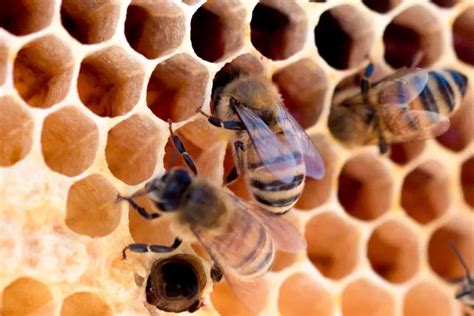How Fast Can Bees Make A Hive
Ronan Farrow
Apr 04, 2025 · 3 min read

Table of Contents
How Fast Can Bees Make a Hive? The Amazing Speed of Honeybee Construction
Honeybees are remarkable creatures, and their ability to build a hive is a testament to their incredible teamwork and efficiency. But just how fast can they actually do it? The answer, as you might expect, isn't a simple number. It depends on several factors, and understanding those factors is key to appreciating the marvel of beehive construction.
Factors Affecting Hive Building Speed
Several key factors influence how quickly a honeybee colony can construct a new hive:
1. The Swarm's Size:
A larger swarm, meaning more bees, translates to a faster construction rate. Think of it like a construction crew – the more workers you have, the quicker the job gets done. A massive swarm might begin creating comb almost immediately.
2. Resource Availability:
Bees need resources, specifically pollen and nectar, to fuel their energy levels and produce wax, the fundamental building block of their comb. If resources are abundant, the building process speeds up. Conversely, a shortage of resources will significantly slow down or even halt construction.
3. Environmental Conditions:
Temperature and weather play a crucial role. Bees are most active and efficient in warm, dry conditions. Cold, wet, or windy weather can dramatically reduce their activity and the rate of hive construction. Protecting themselves from the elements is a top priority before comb building.
4. Existing Structure:
If the bees find a pre-existing cavity, such as a hollow tree or an abandoned beehive, they can significantly reduce the time it takes to establish their new home. This is because they don't need to build from scratch; they can focus on expanding and refining the existing structure.
The Timeframe: A Rough Estimate
Given these variables, it's difficult to give a precise timeframe. However, under optimal conditions (a large swarm, abundant resources, warm weather, and a suitable cavity), a honeybee colony can build a substantial amount of comb incredibly quickly.
- Initial stages: Within the first few days, a substantial amount of comb may already be built. This is likely the most rapid phase of construction.
- Ongoing construction: The hive will continue to grow and expand over weeks and months, as the colony size increases and honey stores accumulate.
Think of it less as a race against time and more as a continuous process, adjusting to the needs and resources of the colony.
The Amazing Process: From Wax to Comb
It's worth highlighting the complexity of the process itself. Worker bees secrete wax from glands on their abdomens, meticulously shaping it into hexagonal cells, the hallmark of the honeybee comb. The precision and efficiency of this process are truly remarkable. Each cell has a purpose: storing honey, pollen, and raising brood (young bees).
Conclusion: A Marvel of Nature
The speed at which honeybees build their hive is a testament to their incredible social organization, instinctive behavior, and efficiency. While it's impossible to give a precise number, understanding the factors influencing the process helps appreciate the complexity and wonder of this natural phenomenon. It's a process that continues to fascinate scientists and nature lovers alike.
Featured Posts
Also read the following articles
| Article Title | Date |
|---|---|
| How Does A Pilot Light Go Out | Apr 04, 2025 |
| How Do Title Loans Work In Az | Apr 04, 2025 |
| How Do I Get My Ex Wife Back | Apr 04, 2025 |
| How Did Dawson Steele Die | Apr 04, 2025 |
| How Expensive Is Beef Tenderloin | Apr 04, 2025 |
Latest Posts
Thank you for visiting our website which covers about How Fast Can Bees Make A Hive . We hope the information provided has been useful to you. Feel free to contact us if you have any questions or need further assistance. See you next time and don't miss to bookmark.
